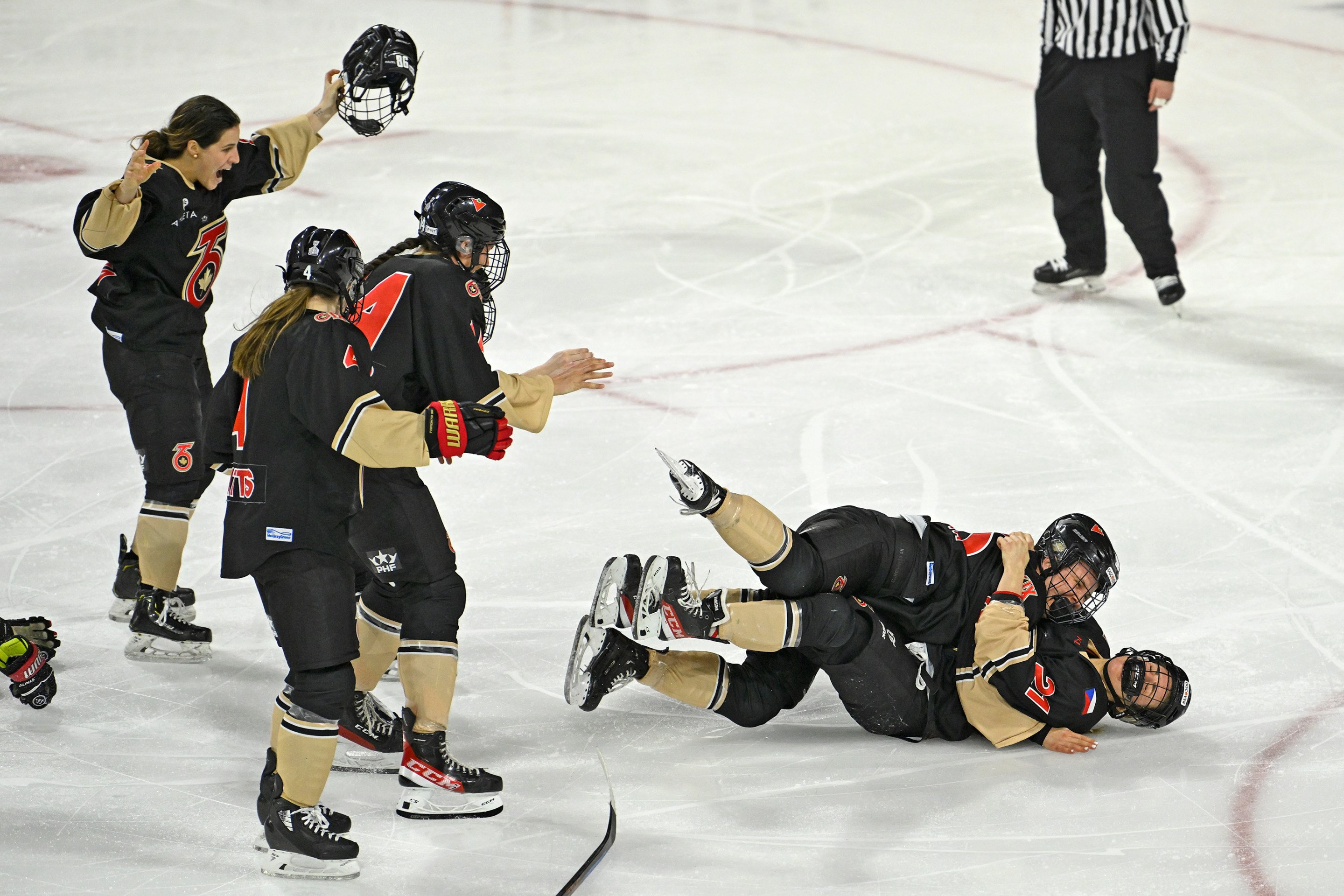The 20 minutes on the clock felt like more of a gag than a limit, like when my older cousins would set up a Super Smash Bros. game with 99 lives. You knew the game would end long before time expired.
The PHF went to 3-on-3 overtimes ahead of the 2021–22 season. None of the five playoff games that year lasted past regulation, but in their best-of-three semifinal series leading to Sunday's Isobel Cup, the Toronto Six used the wide-open ice of overtime for a dramatic boost. Facing the Connecticut Whale in a must-win Game 2 back on March 18, Six forward Emma Woods took a drop pass from Kati Tabin after she coasted into the offensive zone on a 3-on-2 made possible by the long change. Woods aimed, fired, and sent the series to a decisive Game 3, where Toronto would shut out the Whale and advance to the one-game final.
The fourth-seeded Minnesota Whitecaps swept the Boston Pride to meet the Six at the Arizona State hockey arena in Tempe with the Cup on the line, and the two teams played an exciting rubber band game that led to a 3-3 stalemate. While in the semifinals the overtime clock offered just 10 minutes before a tiebreaking shootout, here in the last game of the year each team had a whole 20 minutes to find a goal.
The clock beckoned fans to imagine something ridiculous. It might have been an unforgettably weird and dramatic sight to see the teams going the distance, dragging themselves through chance after chance for as much as four times the traditional regular season NHL overtime length until finally someone broke through. But the sheer amount of skating involved at 3-on-3, and the number of shots made possible by the lack of traffic, practically guarantees a version of hockey more akin to checkers than chess. At a certain point, the task for goaltenders becomes nearly impossible.
After a little over four minutes of action mostly directed at Minnesota goalie Amanda Leveille, an incredible individual effort from Tereza Vanišová won the Six their first-ever title. As the Whitecaps recovered the puck in their own zone, and two of her teammates retreated, Vanišová chased down Liz Schepers in the corner, knocked the puck loose, took over possession, then turned toward the crease and placed her shot under the crossbar for the win.
This was a great end to a fun Toronto run, even if the Isobel Cup retains some of the buggy hallmarks of a league still looking to find its footing. On the plus side, this was the most legitimate playoffs in PHF history, with three teams left out after the regular season and actual series in the semis instead of winner-take-all games. Additionally, it came at the conclusion of what felt like a very solid business year—their second since changing their name from the NWHL—which featured a new seventh team in Montreal, the announcement of a significant salary cap increase, and a thankful lack of COVID interruptions or internal awkwardness.
That said, the PHF is still lacking the barnstorming stars on display in the PWHPA, and the crowds they draw leave a lot to be desired. The 3-on-3 overtime final, too, gave the impression that it existed not because it was the fairest way to decide a champion but because the league doesn't have the TV clout to demand the kind of multi-overtime extended broadcast that the Stanley Cup Playoffs receive. If the PHF continues to jump through all the hoops a young league must to stay solvent, the Isobel Cup will hopefully at some point grow beyond the gimmick of a one-game championship decided in 3-on-3 and into something longer and more traditionally competitive. For now, though, this felt unique, memorable, and ultimately pretty satisfying.






